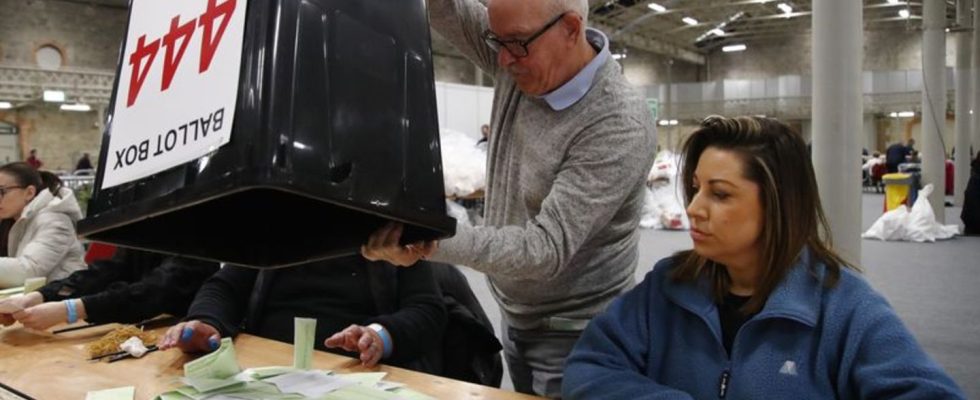Constitution
Role of women: Ireland votes against modernization
In Ireland, people were able to decide on two constitutional changes in a double vote. photo
© Damien Storan/PA Wire/dpa
Ireland’s government wanted to modernize two passages of text. The concept of family should be expanded and a passage on the role of women in the household should be reworded. But the plan failed.
Ireland’s government has failed with two referendums that amended formulations in the constitution on the role of the Woman should be modernized in the household and family. More than two thirds of those eligible to vote voted against the proposed changes, as the count showed in the evening. Prime Minister Leo Varadkar had already admitted defeat in the afternoon: “It was our responsibility to convince a majority of people to vote yes, and we clearly failed.”
In the Republic of Ireland – on International Women’s Day on Friday of all days – people were able to decide on two constitutional changes in a double vote. The predominantly Catholic country took a similar approach in the past and introduced full marriage equality for homosexual couples.
Voter turnout was 44.4 percent
On the one hand, it was now possible to decide on a definition of family that would also have explicitly included unmarried couples. 67.7 percent (1.02 million) voted against, and voter turnout was around 44.4 percent. An article recognizing the family “as the natural, primary and fundamental unit of society” should have been supplemented with the addition of “Family – regardless of whether it is based on marriage or any other permanent relationship”.
On the other hand, wording should be changed in which, for example, women’s “domestic duties” are mentioned. The passage should have been replaced by a gender-neutral wording in which the importance of care work should also be anchored. 73.9 percent voted against (1.1 million votes).
The passage now goes on to say that the state recognizes that “the woman, through her life at home, is a support to the state, without which the common good cannot be realized.” The state should ensure that mothers are not forced out of economic necessity to work “while neglecting their domestic duties”.

